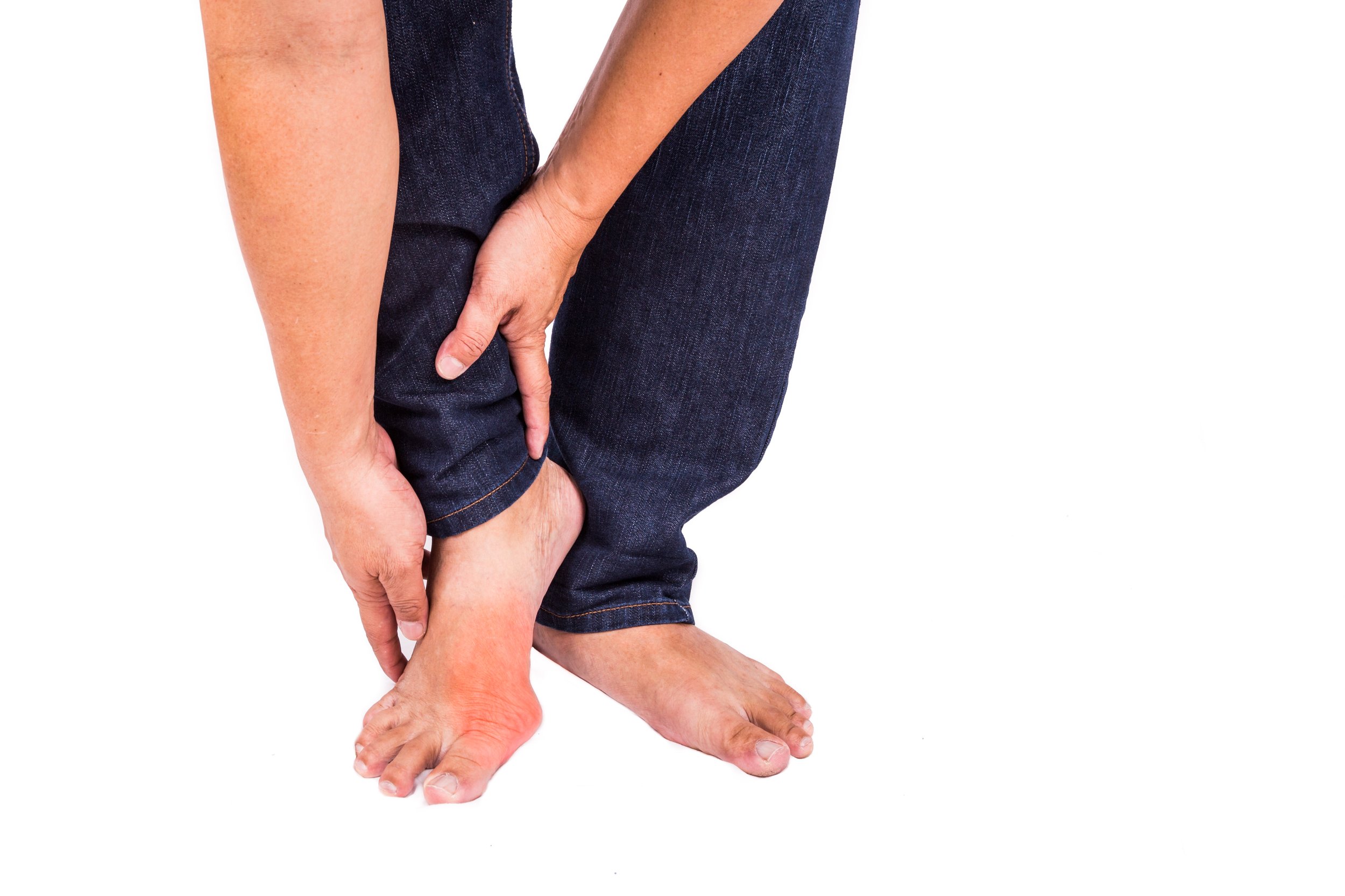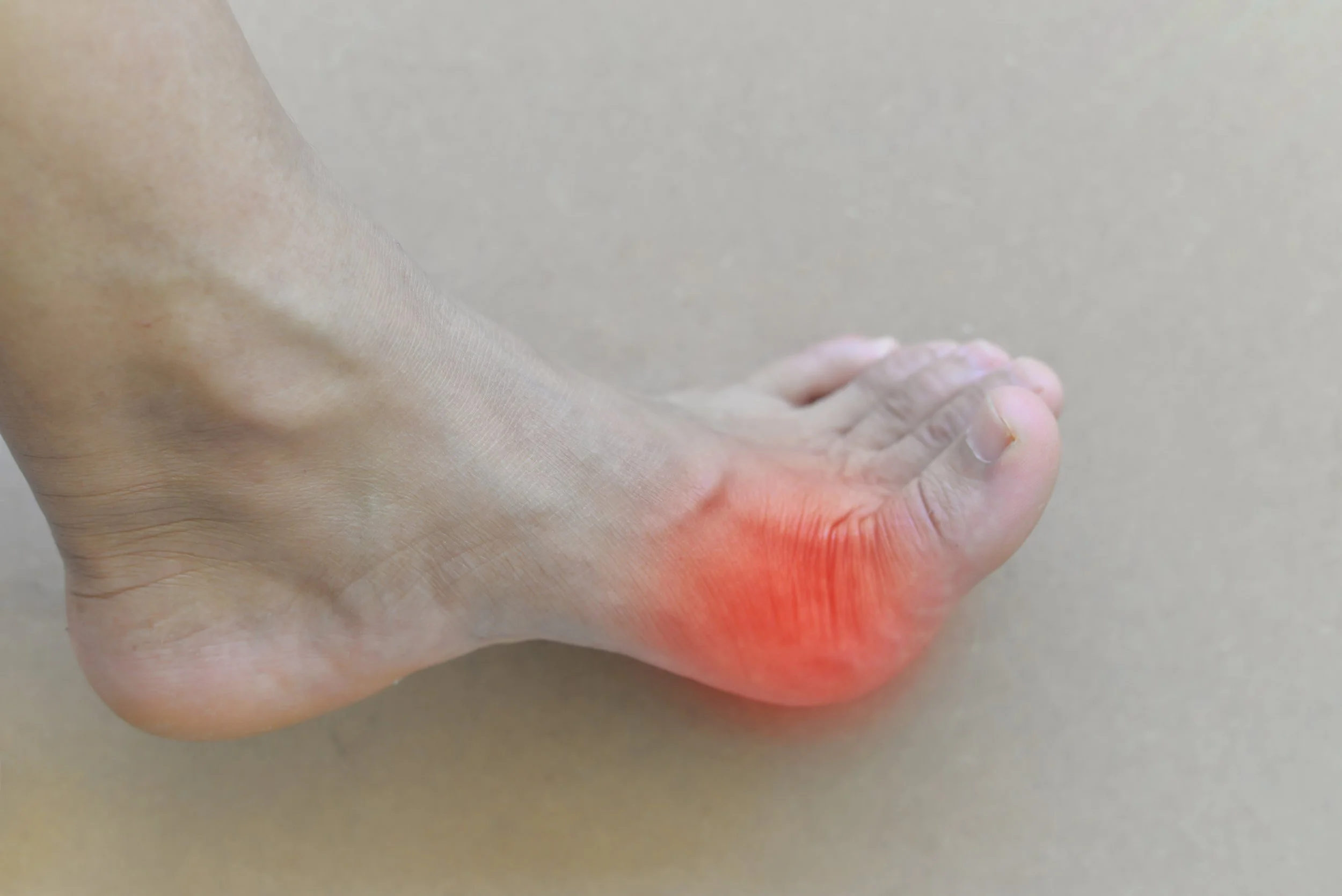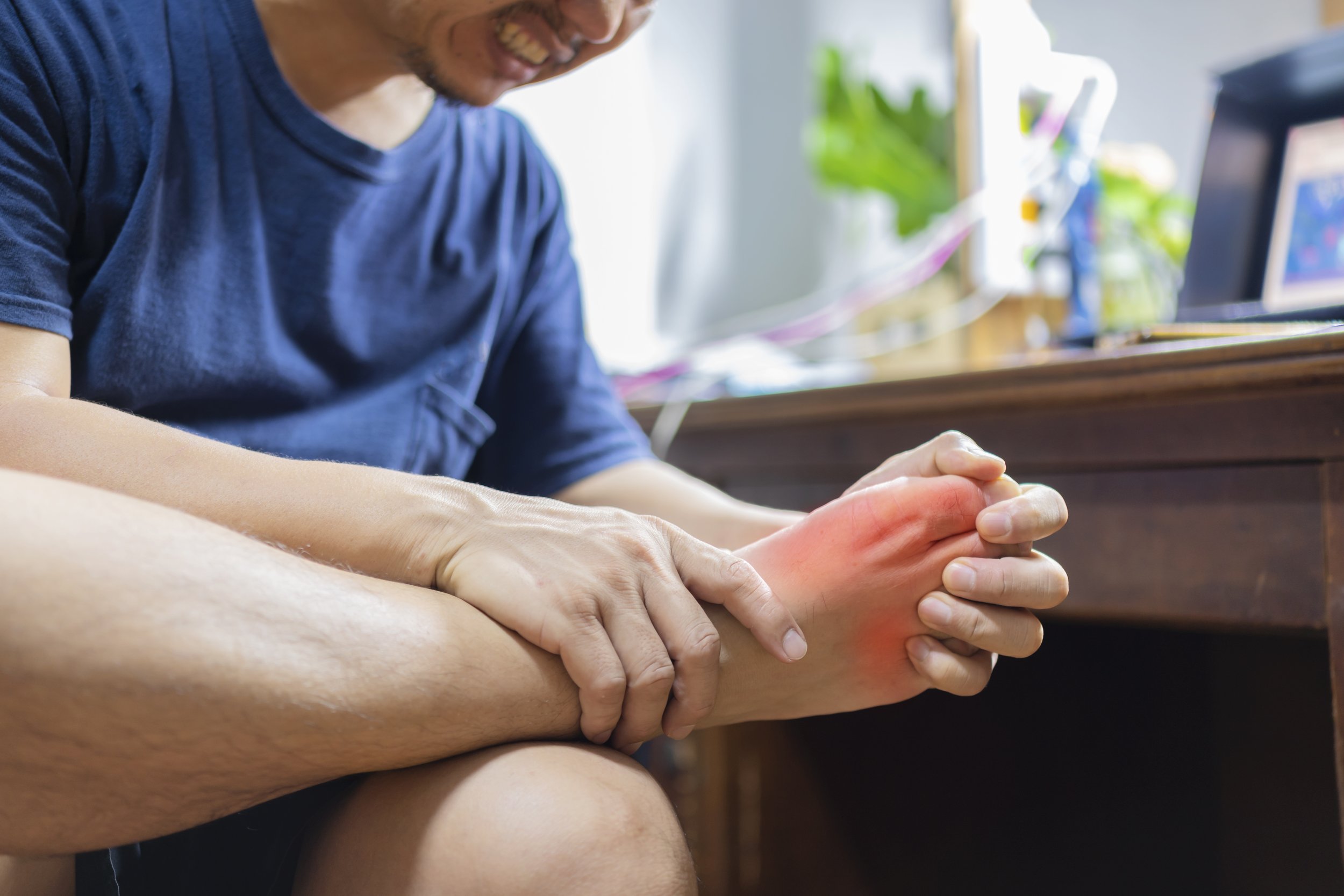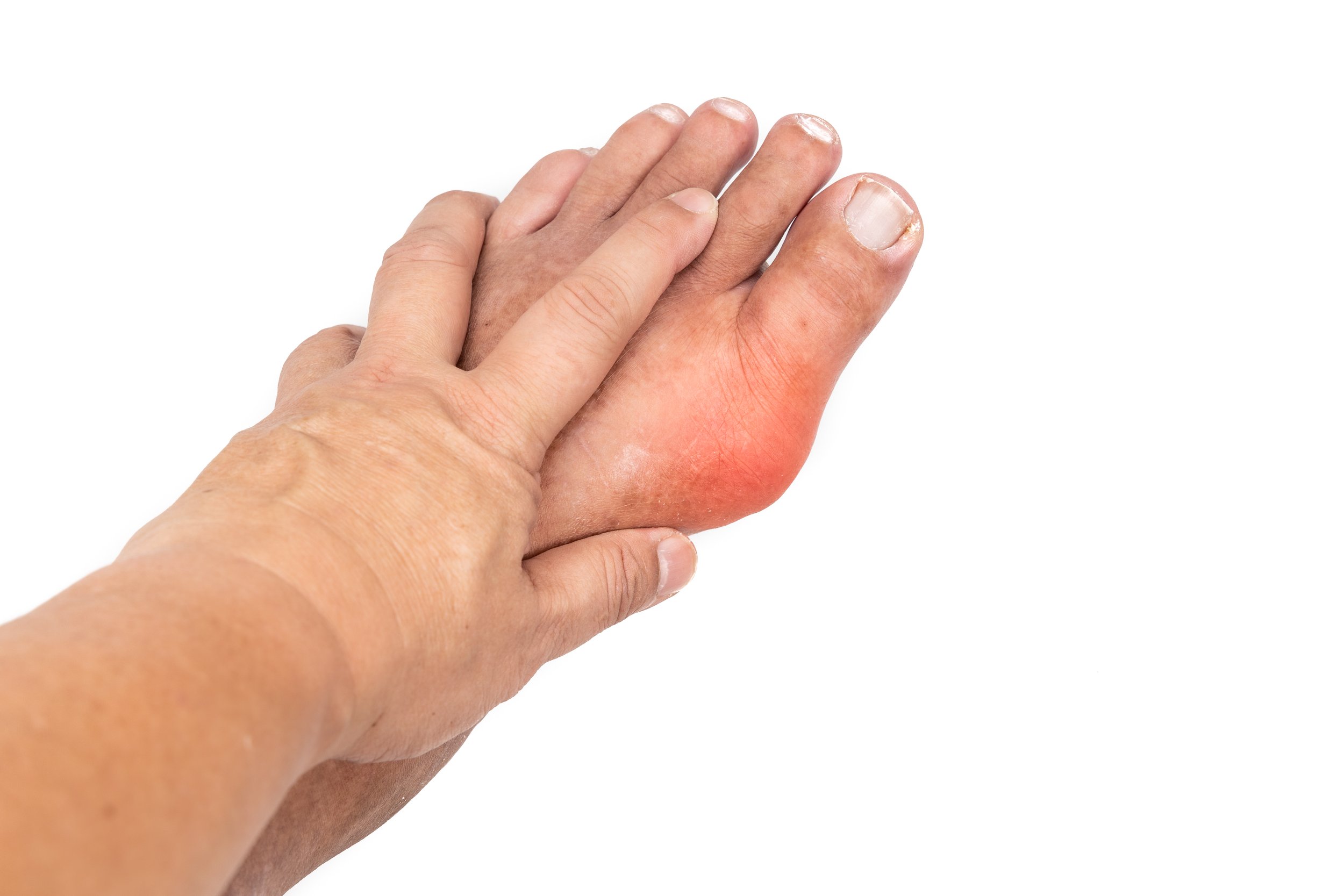
Gout Specialists
Gout Podiatrist in Woodbury Heights, Haddon Heights, Voorhees, Pine Hill & Turnersville, NJ
Trusted Gout Specialists for Foot Pain Relief
At Foot & Ankle Centers of South Jersey, our experienced gout specialists provide expert diagnosis and personalized treatment to effectively manage gout-related foot pain. Gout can cause sudden, intense pain and significantly disrupt your life. Our team offers comprehensive solutions to address acute symptoms, manage chronic conditions, and prevent future gout attacks—helping you regain mobility and comfort.
What Is Gout?
Gout is a common form of inflammatory arthritis caused by elevated levels of uric acid in the blood. When uric acid builds up, sharp crystals can form inside the joints, triggering intense pain, swelling, and inflammation.
Gout most commonly affects the foot and ankle joints, especially the big toe, but it can occur elsewhere as well. Without proper treatment, gout can lead to chronic pain, joint damage, and decreased quality of life.
Early diagnosis and specialized care from our gout experts can significantly improve outcomes and protect your mobility.
Signs and Symptoms of Gout
Gout usually appears suddenly and is known for its intense and often debilitating pain. Symptoms can last for days or weeks before subsiding, followed by periods of remission.
Common signs of a gout attack include:
Sudden, intense joint pain (especially at night)
Swelling and redness around the joint
Warmth or heat in the affected area
Stiffness and tenderness
Difficulty bearing weight or walking
Although the big toe is most commonly affected, gout can also develop in the ankle, foot, or knee. If untreated, chronic gout can lead to the formation of tophi—hard lumps of uric acid deposits that damage joints and surrounding tissue.
When to See a Gout Specialist
While some people try to self-manage early symptoms, it's critical to see a specialist for proper evaluation and care.
Professional diagnosis ensures you rule out other conditions and begin an effective, personalized treatment plan.
Seek help if you experience:
Recurring joint pain or swelling in your foot or ankle
Persistent redness, heat, or tenderness in the joints
Difficulty walking or finding comfortable footwear
Frequent flare-ups that disrupt your routine
Early intervention can prevent long-term joint damage and significantly improve your quality of life.
How Gout Is Diagnosed
At Foot & Ankle Centers, we use a combination of clinical examination and diagnostic testing to confirm gout and guide treatment:
Medical history and physical exam:
We assess your symptoms, health history, and examine affected joints.Joint fluid aspiration:
A small sample of fluid is withdrawn from the joint and analyzed for urate crystals.Blood tests:
We measure your uric acid levels to support the diagnosis.Imaging (X-ray or ultrasound):
These tools help us identify crystal deposits and rule out other causes of joint inflammation.
Gout Treatment Options
Our approach to gout care addresses both immediate symptom relief and long-term prevention.
Acute Flare-Up Treatment
Nonsteroidal anti-inflammatory drugs (NSAIDs) to reduce inflammation and pain
Corticosteroid injections for rapid relief in severe cases
Colchicine for effective gout-specific symptom management
Long-Term Gout Management
Urate-lowering medications such as allopurinol (Lopurin, Zyloprim) and febuxostat (Uloric) to control uric acid levels
Uricosuric agents like probenecid to improve uric acid excretion
Lifestyle counseling on diet, hydration, and weight management to lower flare-up risk
Medication review to minimize medications that may contribute to high uric acid
Custom Footwear and Orthotics for Gout Relief
We offer custom orthotics designed to alleviate pressure on vulnerable joints and improve overall foot biomechanics.
Supportive footwear recommendations help redistribute weight, reduce joint stress, and promote healing after a gout attack.
Gout Surgery
While most gout cases are managed non-surgically, some patients with severe, chronic disease may require surgery.
Surgical options include:
Tophi removal to eliminate hardened uric acid deposits
Joint fusion surgery to stabilize severely damaged joints
Joint replacement surgery to restore function when joint destruction is advanced
Our experienced surgical team will recommend the most appropriate approach if conservative measures are not enough.

Schedule an Appointment with a Gout Specialist Today
Don't let gout attacks control your life or cause irreversible joint damage. Early, specialized care can make all the difference.
Contact Foot & Ankle Centers of South Jersey today to schedule a consultation with one of our trusted gout specialists.
We’re here to help you move better, feel better, and get back to the life you love.





